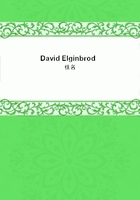
第17章
Suddenly it struck Hugh, that if Margaret were such an admirer of nature, possibly she might enjoy Wordsworth. He himself was as yet incapable of doing him anything like justice; and, with the arrogance of youth, did not hesitate to smile at the Excursion, picking out an awkward line here and there as especial food for laughter even. But many of his smaller pieces he enjoyed very heartily, although not thoroughly--the element of Christian Pantheism, which is their soul, being beyond his comprehension, almost perception, as yet. So he made up his mind, after a moment's reflection, that this should be the next author he recommended to his pupil. He hoped likewise so to end an interview, in which he might otherwise be compelled to confess that he could render Margaret no assistance in her search after the something in the wood; and he was unwilling to say he could not understand her; for a power of universal sympathy was one of those mental gifts which Hugh was most anxious to believe he possessed.
"I will bring you another book to-night," said he "which I think you will like, and which may perhaps help you to find out what is in the wood."He said this smiling, half in playful jest, and without any idea of the degree of likelihood that there was notwithstanding in what he said. For, certainly, Wordsworth, the high-priest of nature, though perhaps hardly the apostle of nature, was more likely than any other writer to contain something of the secret after which Margaret was searching. Whether she can find it there, may seem questionable.
"Thank you, sir," said Margaret, gratefully; but her whole countenance looked troubled, as she turned towards her home.
Doubtless, however, the trouble vanished before she reached it, for hers was not a nature to cherish disquietude. Hugh too went home, rather thoughtful.
In the evening, he took a volume of Wordsworth, and repaired, according to his wont, to David's cottage. It was Saturday, and he would stay to supper. After they had given the usual time to their studies, Hugh, setting Margaret some exercises in English to write on her slate, while he helped David with some of the elements of Trigonometry, and again going over those elements with her, while David worked out a calculation--after these were over, and while Janet was putting the supper on the table, Hugh pulled out his volume, and, without any preface, read them the Leech-Gatherer. All listened very intently, Janet included, who delayed several of the operations, that she might lose no word of the verses; David nodding assent every now and then, and ejaculating ay! ay! or eh, man! or producing that strange muffled sound at once common and peculiar to Scotchmen, which cannot be expressed in letters by a nearer approach than hm--hm, uttered, if that can be called uttering, with closed lips and open nasal passage; and Margaret sitting motionless on her creepie, with upturned pale face, and eyes fixed upon the lips of the reader. When he had ceased, all were silent for a moment, when Janet made some little sign of anxiety about her supper, which certainly had suffered by the delay. Then, without a word, David turned towards the table and gave thanks. Turning again to Hugh, who had risen to place his chair, he said, "That maun be the wark o' a great poet, Mr. Sutherlan'.""It's Wordsworth's," said Hugh.
"Ay! ay! That's Wordsworth's! Ay! Weel, I hae jist heard him made mention o', but I never read word o' his afore. An' he never repentit o' that same resolution, I'se warrant, 'at he eynds aff wi'. Hoo does it gang, Mr. Sutherlan'?"Sutherland read:--"'God,' said I, 'be my help and stay secure!
I'll think of the leech-gatherer on the lonely moor;'"and added, "It is said Wordsworth never knew what it was to be in want of money all his life.""Nae doubt, nae doubt: he trusted in Him."
It was for the sake of the minute notices of nature, and not for the religious lesson, which he now seemed to see for the first time, that Hugh had read the poem. He could not help being greatly impressed by the confidence with which David received the statement he had just made on the authority of De Quincey in his unpleasant article about Wordsworth. David resumed:
"He maun hae had a gleg 'ee o' his ain, that Maister Wordsworth, to notice a'thing that get. Weel he maun hae likit leevin' things, puir maukin an' a'--jist like our Robbie Burns for that. An' see hoo they a' ken ane anither, thae poets. What says he aboot Burns?--ye needna tell me, Mr. Sutherlan'; I min't weel aneuch. He says:--'Him wha walked in glory an' in joy, Followin' his ploo upo' the muntain-side.'
Puir Robbie! puir Robbie! But, man, he was a gran' chield efter a';an' I trust in God he's won hame by this!"
Both Janet and Hugh, who had had a very orthodox education, started, mentally, at this strange utterance; but they saw the eye of David solemnly fixed, as if in deep contemplation, and lighted in its blue depths with an ethereal brightness; and neither of them ventured to speak. Margaret seemed absorbed for the moment in gazing on her father's face; but not in the least as if it perplexed her like the fir-wood. To the seeing eye, the same kind of expression would have been evident in both countenances, as if Margaret's reflected the meaning of her father's; whether through the medium of intellectual sympathy, or that of the heart only, it would have been hard to say.
Meantime supper had been rather neglected; but its operations were now resumed more earnestly, and the conversation became lighter;till at last it ended in hearty laughter, and Hugh rose and took his leave.